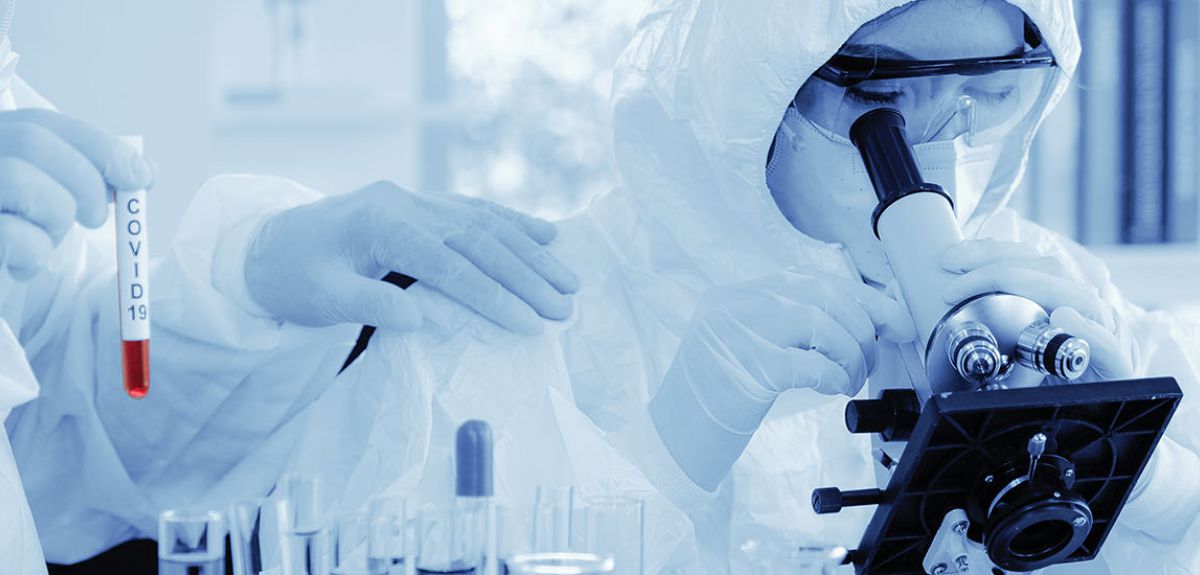Oxford University’s COVID-19 vaccine: next steps towards broad and equitable global access
The University of Oxford in partnership with AstraZeneca has taken the next steps in its commitment to broad and equitable global access to Oxford’s COVID-19 vaccine, following landmark agreements with the Coalition for Epidemic Preparedness Innovations (CEPI), Gavi the Vaccine Alliance, and the Serum Institute of India (SII).
Our vaccine work is progressing quickly. To ensure you have the latest information or to find out more about the trial, please check our latest COVID-19 research news or visit the COVID-19 trial website.
AstraZeneca has reached a $750m agreement with CEPI and Gavi to support the manufacturing, procurement and distribution of 300 million doses of the vaccine, with delivery starting by the end of the year. In addition, the university and industry partnership reached a licensing agreement with SII to supply one billion doses for low-and-middle-income countries, with a commitment to provide 400 million before the end of 2020.
Together, the agreements mark the latest commitments to enable global access to the vaccine, including to low-and-middle-income countries, beyond the company’s recent partnerships with the UK and US. AstraZeneca is building a number of supply chains in parallel across the world to support global access at no profit during the pandemic and has so far secured manufacturing capacity for two billion doses of the vaccine.
The agreement with CEPI and Gavi also represents the first advanced market commitment through the Access to COVID-19 Tools (ACT) Accelerator, a global mechanism co-chaired by the Bill & Melinda Gates Foundation and the World Health Organisation (WHO). The mechanism will work to ensure the fair allocation and distribution of the vaccine across the world including in low-and-middle-income nations. CEPI will lead development and manufacturing and Gavi will lead the procurement within the global mechanism.
Professor Adrian Hill, Director of the Jenner Institute at the University of Oxford said: “We are delighted to see this major agreement with global industry partners which brings to fruition the goal of Oxford University and AstraZeneca to help ensure very large scale fair and equitable COVID-19 vaccine provision in low to middle income countries around the world. We are deeply grateful to all those collaborating with unprecedented urgency to make this goal possible.”
Pascal Soriot, Chief Executive Officer, AstraZeneca, said: “We are working tirelessly to honour our commitment to ensure broad and equitable access to Oxford’s vaccine across the globe and at no profit. Today marks an important step in helping us supply hundreds of millions of people around the world, including to those in countries with the lowest means. I am deeply grateful for everyone’s commitment to this cause and for their work in bringing this together in such a short time.”
Dr Richard Hatchett, Chief Executive Officer, CEPI, said: “AstraZeneca and our other industry partners have a critical role to play in rapidly developing safe and effective vaccines and manufacturing the billions of doses needed to put a permanent end to the COVID-19 pandemic. AstraZeneca is admirably committed to equitable global access for this vaccine, and this partnership demonstrates how the COVID-19 Vaccine Global Access Facility will bring the private, public and third sectors together to make COVID-19 vaccines available to those who need them most, for the benefit of all.”
Dr Seth Berkley, Chief Executive Officer, Gavi, said: “Today we have seen tremendous willingness from donor governments to support equitable access, particularly to developing countries– and it is incredibly heartening to see the private sector join in this effort. We encourage other vaccine manufacturers to work with us towards the shared global goal of finding solutions for this unprecedented pandemic.”
Adar Poonawalla, Chief Executive Officer, SII, said: “Serum Institute of India is delighted to partner with AstraZeneca in bringing this vaccine to India as well as low-and-middle-income countries. Over the past 50 years SII has built significant capability in vaccine manufacturing and supply globally. We will work closely with AstraZeneca to ensure fair and equitable distribution of the vaccine in these countries.”
AstraZeneca recently agreed to supply 400 million doses to the US and UK after reaching a licence agreement with Oxford University for its recombinant adenovirus vaccine.
Oxford University recently announced the start of a Phase II/III trial of the vaccine in about 10,000 adult volunteers with other late-stage trials due to begin in a number of countries around the world.

